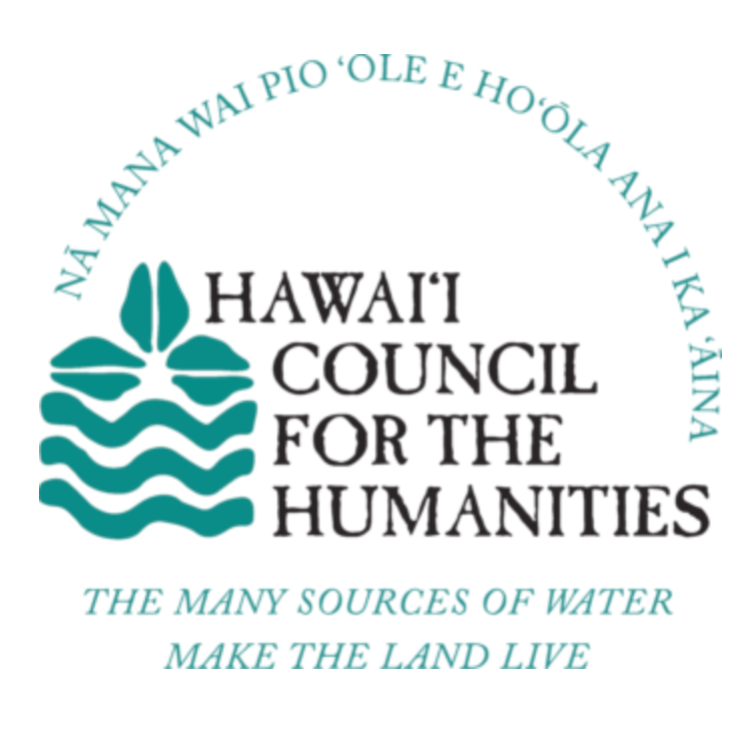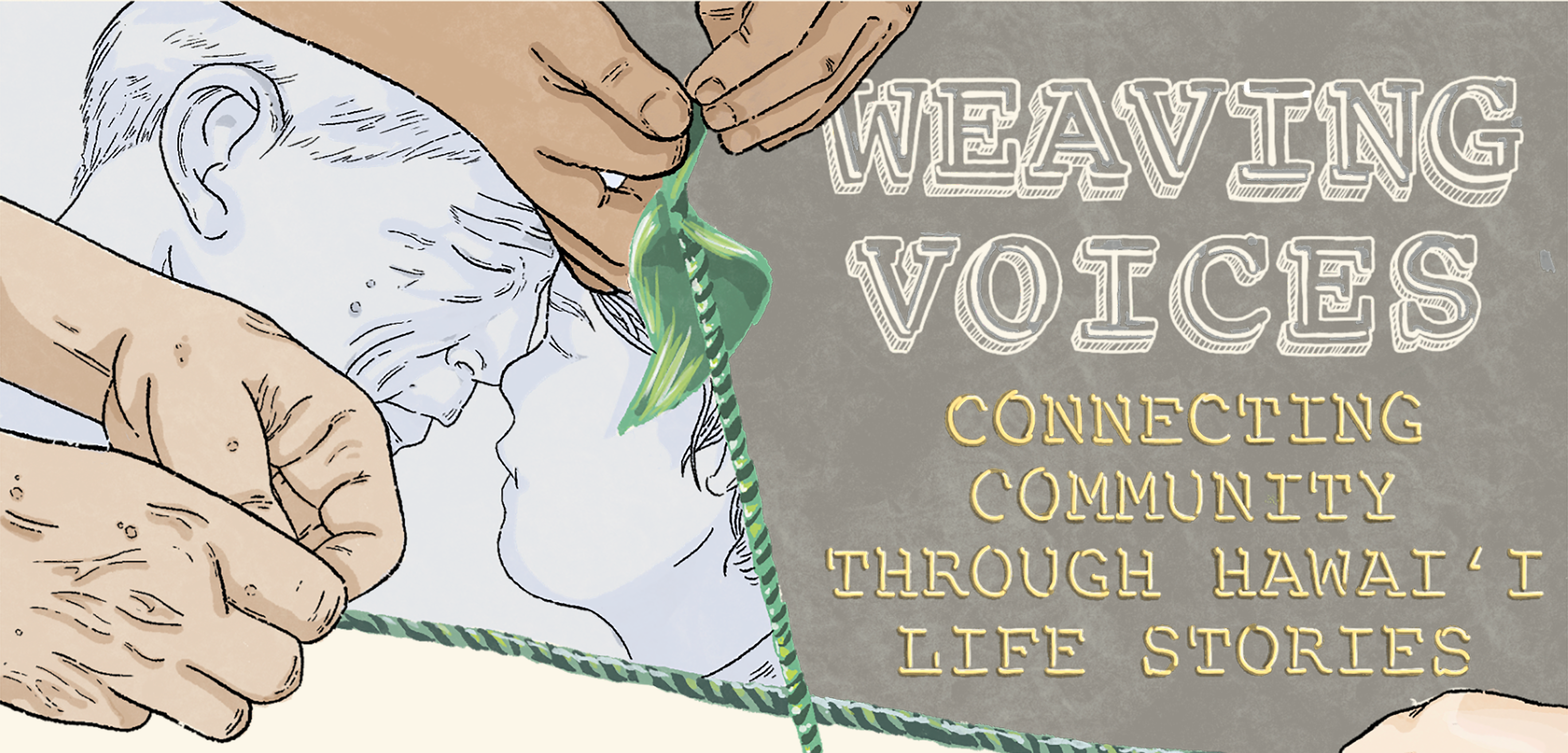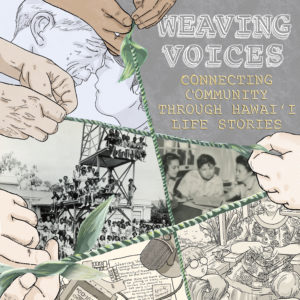Weaving Voices was a series of public events where, in partnership with the Center for Oral History at University of Hawaiʻi at Mānoa, we explore communities in transition by weaving together voices from oral history recordings together with voices from today. In this powerful shared space, we listen, remember, laugh, cry, and carry forward lessons of resilience and ingenuity, connecting past, present, and futures.
In 2020, we had three Weaving Voices events. We visited and shared recollections from the past with Pālama Settlement, Hawaiʻi’s political leaders, and Kahoʻolawe. Each shared space reminded us of the richness and strength of our Hawaiʻi communities—even in hard times, perhaps especially, we have come together and created a tapestry that connects us all in intricate, difficult, and beautiful ways. Keep scrolling to find out more about Pālama Settlement, our political past, and the movement to protect Kahoʻolawe.
In 2021, the Weaving Voices series continued visiting virtual space with communities in Waialua and Kōloa and looking at Visionary Women in Politics and Education.
HISTORIC KŌLOA TODAY: A VIRTUAL TALK STORY & RELECTION
July 29, 2021
5:30-7:00 pm (HST)
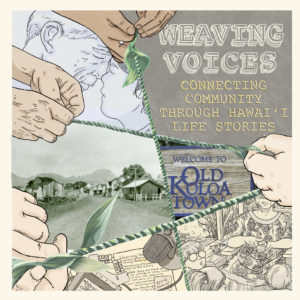 Like other plantation communities, Kōloa’s sugar production and plantation camps have no faded into memory, but the diverse cultures they brought together still remain. Annually, longtime and newer Kōloa and Poʻipū residents honored their rich heritage with the Kōloa Plantation Days celebration that was postponed to 2022 because of COVID.
Like other plantation communities, Kōloa’s sugar production and plantation camps have no faded into memory, but the diverse cultures they brought together still remain. Annually, longtime and newer Kōloa and Poʻipū residents honored their rich heritage with the Kōloa Plantation Days celebration that was postponed to 2022 because of COVID.
Participants gathered vitally to listen to oral history recordings, which inspired the sharing of many stories of Kōloa. The oral history recordings featured the voices of Iki Mor, Katie Bukowski Viveiros, Vicente Bargayo, Marvin Brennecke, and Robert Kunimura.
This program was done in partnership with the UHM Center for Oral History, Kōloa Plantation Days and the Kōloa Public Library.
PODCAST:
PUBLIC PROGRAM:
VISIONARY WOMEN IN POLITICS AND EDUCATION
March 4, 2021
5:30-6:30 pm (HST)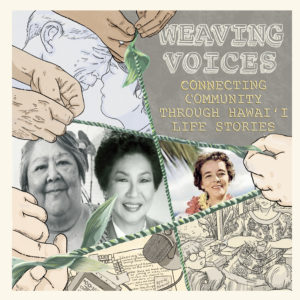
As educators, women have played a leading role in shaping the minds of the youth of our nation. For some, teaching has led to even larger leadership roles in government, including elected office. In honor of Women’s History Month, join us in conversation with Hawaiʻi’s First Lady, Dawn Ige, and retired schoolteacher and Employee Retirement System board member, Pilialoha Lee Loy, to reflect on the impact of some of the earliest elected and influential women in Hawaiʻi’s political and educational arenas.
Featuring oral histories from Congresswoman Patricia Saiki, county and state lawmaker Helene Hale, and educator Marion Lee Loy, this program will explore what inspired these women to emerge as community leaders in pursuit of their policy goals and how education served as a tool for women to empower and engage our community.
This event was done in partnership with the UHM Center for Oral History, Kamehameha V Judiciary History Center and was also part of our Why It Matters: Civic and Electoral Participation program.
PODCAST:
PUBLIC PROGRAM:
MEMORIES AND FUTURES OF WAIALUA
January 27, 2021
Wednesday, 4:00-5:30 pm (HST)
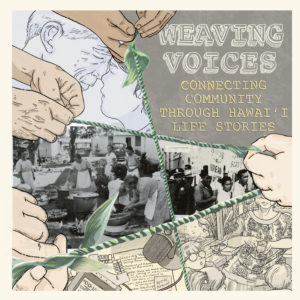
As plantations began to phase out in Hawaiʻi, these oral histories were collected to document the way of life in our plantation and rural communities and offer insight into the daily life of Native Hawaiian, Chinese, Japanese, Filipino, and Puerto Rican communities of Waialua in the early 20th century–gathering ʻopihi, cutting and loading cane at the Waialua Sugar Mill, playing volleyball. Join us for a discussion about finding resilience and relationship in our rapidly changing Hawaiʻi, looking to the past to weave our future.
Speakers for this event were Keith Awai—Kumu Hula, Waialua community member, Tehani Louis-Perkins—North Shore Neighborhood Board Member, and Voices from the Oral History Archive. This event was sponsored by UHM Center for Oral History and the Waialua Hawaiian Civic Club.
PODCAST:
PUBLIC PROGRAM:
STOPPED THE BOMBING 30TH ANNIVERSARY KAHOʻOLAWE ALOHA ʻĀINA
October 27, 2020
Tuesday, 4:00 – 5:30 pm (HST)

On October 22, 1990, President George H.W. Bush ordered the Secretary of Defense to stop bombing Kahoʻolawe. In this event, the UHM Center for Oral History, the Hawaiʻi Council for the Humanities, the Protect Kahoʻolawe ʻOhana and DAWSON celebrated the 30th anniversary of this highly influential moment from our shared past.
This program highlighted voices of first generation oral histories and those of rising generation perspectives on the Aloha ʻĀina movement, which mobilized thousands across the islands to stop the bombing of Kanaloa Kahoʻolawe, sparked a renaissance of Hawaiian culture, language, arts and sciences, and continues to protect sacred Hawaiian lands.
Speakers for this event included Kaulupono Luʻuwai and KaipulaumakanioLono Baker and the program was sponsored by UHM Center for Oral History, Protect Kahoʻolawe ʻOhana, DAWSON, and Hawaiʻi Public Radio.
PODCAST:
PUBLIC PROGRAM:
LOOKING TO OUR PAST FOR NEW POLITICAL VISIONS
October 20, 2020
Tuesday, 5:30 – 6:30 pm
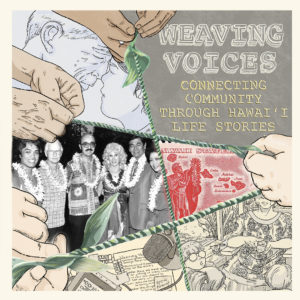 What kind of leadership do we need to take us out of COVID-19? What power does our vote have in this upcoming election? This Weaving Voices event continued to explore communities in transition by using oral histories to revisit the era of economic change from plantations to tourism, and political change with the return of AJAs and rise of the Democratic Party in the 1950s. In those times of tumult, new political leaders brought forth a strong and different vision for the future of Hawai‘i, sparking huge transformation.
What kind of leadership do we need to take us out of COVID-19? What power does our vote have in this upcoming election? This Weaving Voices event continued to explore communities in transition by using oral histories to revisit the era of economic change from plantations to tourism, and political change with the return of AJAs and rise of the Democratic Party in the 1950s. In those times of tumult, new political leaders brought forth a strong and different vision for the future of Hawai‘i, sparking huge transformation.
Speakers included Sandy Ma, Executive Director of Common Cause Hawaiʻi and Colin Moore, UHM Center for Public Policy.
This event was done in partnership with the Center for Oral History, the King Kamehameha V Judiciary History Center, and Hawaiʻi Public Radio.
PODCAST:
PUBLIC PROGRAM:
PĀLAMA SETTLEMENT: RESILIENCE AND RECOVERY
August 26th, 2020
Wednesday, 4:00 – 5:15 pm
“This opportunity changed lives for young people.” A place for kids to go. Meals and hot showers. Community services. From its beginnings, Pālama Settlement has been a critical place of healing and recovery, for many communities in transition. What are the kinds of things that really make a difference and help us transform our lives? This public virtual event explored this question and showed us how places like Pālama Settlement can leave a lasting impact that changes lives for the better.
Speakers included: Paula Rath, Blaine Ikaika Dutro, Center for Oral History.
One guest recalled, My husband’s auntie remembered getting free milk there. She loved it. Recently, we purchased two tie dye masks as fund raisers for Pālama kids. Kudos to the women who did this project; the masks are the most comfortable and stylish ones we own.
This event was done in partnership with the Center for Oral History, Pālama Settlement, and Hawaiʻi Public Radio.
Watch PODCAST:
About the Artwork
When coming up with an image that could universally compliment each episode in this series, we decided to focus on the overarching title, Weaving Voices, along with the sentiments of intergenerational knowledge sharing and preservation. I wanted to break up the piece into panels similar to a comic book and thought it might be interesting to use the twisting of the lāʻī as the “gutters” between frames. Making lei lāʻi is a recognizable and easily learned skill, and from my memory it was also a form of knowledge sharing that encouraged laulima; I tried to capture that by having the kupuna’s hands weaving the braid while the younger personʻs hand anchors and holds it strong.
For the one of the panels, I tried to imagine what those two people would look like, and I thought about the sharing of hā to picture the connection between young and old. The hands and appearance of the old man are an homage to my Papa, who comes from a long lineage of weavers. In the bottom right panel, I wanted to include a more straightforward scene of a kupuna sharing a story with a group of kids who listen attentively—or maybe they’re just waiting for her to cut that mango? I wanted to show what a knowledge-sharing space might look like in a way that was relatable and comforting. The bottom panel that features the audio recorder and transcript is my way of honoring the work of oral history collectors and to emphasize the need for preservation. My hope is that all of these images come together to capture the mood and mission of this podcast series.
Rae Kuruhara

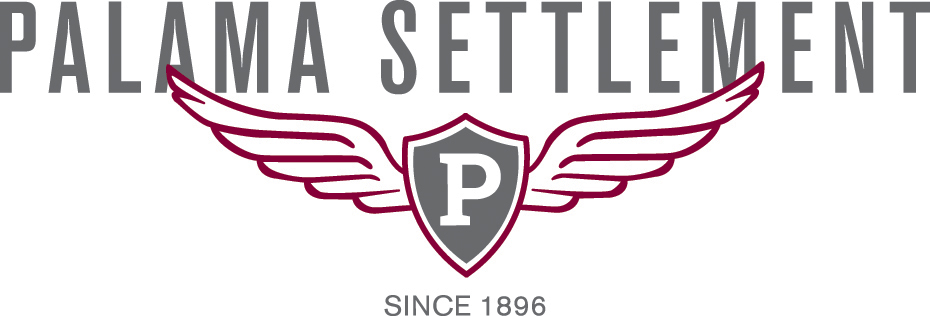
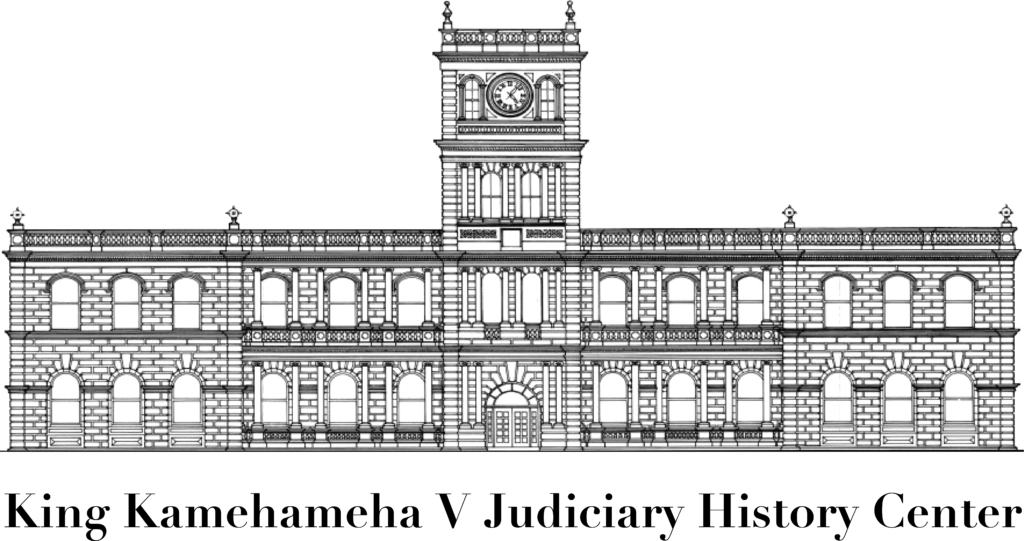

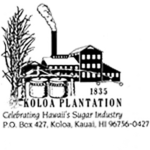
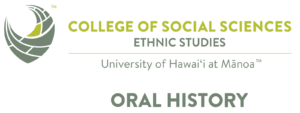
Weaving Voices: Connecting Community through Hawaiʻi Life Stories highlights historic perspectives, through oral history recordings, and contemporary community voices from around our islands and is intended to offer varying perspectives on our shared history. The opinions expressed here do not represent those of Hawaiʻi Council for the Humanities or the National Endowment for the Humanities.
